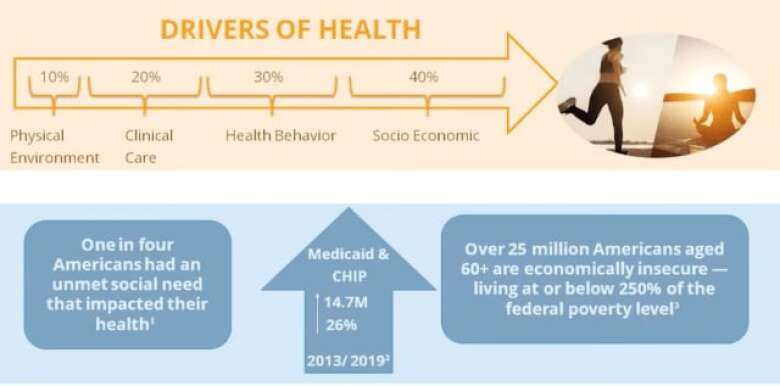Enhancing Value with Social Determinants of Health
Clinical care determines only about 20% of an individual’s overall health status. The rest comes from social determinants, such as housing instability, food insecurity, income, behaviors, and family and community connections. Awareness and understanding of social determinants of health represent a significant opportunity to improve care plans and overall health and wellness.

Where’s the Data?
Anecdotally, programs including health coaches, improved transportation for care, and investments in low income housing have led to fewer emergency visits, lower readmissions, and better health status. Yet few programs have been rigorously measured and shown to deliver value at scale. Direction on how to overcome the challenges of gathering and managing social determinants of health data to support such measurement is also limited.
1 May 2019, Ernst and Young report, “Estimates of the federal revenue forgone due to the tax-exemption of non-profit hospitals compared to the community benefit they provide, 2016.”
https://www.aha.org/system/files/media/file/2019/05/estimate-federal-revenue-forgone-due-to-tax-exemption-non-profit-hospitals-compared-to-community-benefit-they-provide-2016-report.pdf
Note: The $95B figure likely includes bad debt and free care.





